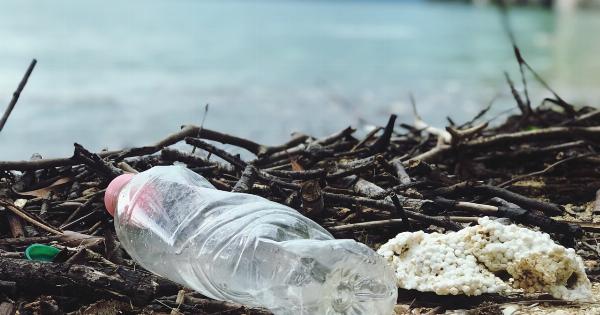Consuming fruits and vegetables is an essential part of a healthy diet. However, choosing the right produce can be challenging, especially when considering the amount of pesticide residues found in them.
Pesticides are chemicals used to control pests, weeds, and diseases in agriculture. Unfortunately, many of these chemicals can be harmful to humans, causing health problems such as cancer, neurological disorders, and reproductive issues.
The Environmental Working Group (EWG) is a non-profit organization that releases an annual list of the most pesticide-laden fruits and vegetables that consumers should buy organic or avoid altogether.
Here are the ten most pesticide-laden fruits and vegetables in the market:.
1. Strawberries
Strawberries top the list as the most pesticide-laden fruit. In fact, a single strawberry can contain up to 22 different pesticides. These chemicals can be harmful to human health, especially for children who have a higher risk of exposure.
Organic strawberries are the best option if you want to avoid consuming pesticides.
2. Spinach
Spinach is one of the healthiest leafy greens and is packed with nutrients such as vitamins, minerals, and antioxidants. However, it is also a vegetable that is heavily sprayed with pesticides, making it the second most pesticide-laden on the list.
Over 97% of spinach samples tested by the EWG contained pesticide residues that can harm human health.
3. Kale
Kale has been a popular superfood in recent years due to its high nutrient content and health benefits. However, it is also one of the most heavily sprayed leafy greens, making it third on the list of pesticide-laden fruits and vegetables.
Over 92% of kale samples tested by the EWG contained at least two or more pesticide residues.
4. Nectarines
Nectarines are a delicious summer fruit that is often used for desserts and smoothies. However, they are also one of the most pesticide-laden fruits on the market, ranking fourth on the EWG’s list.
Pesticide residues found in nectarines have been linked to cancer, developmental disorders, and reproductive issues.
5. Apples
Apples are a popular fruit and are widely consumed due to their high nutrient content and health benefits. Unfortunately, they are also heavily sprayed with pesticides, making them the fifth most pesticide-laden fruit on the list.
Over 90% of apple samples tested by the EWG contained pesticide residues that can harm human health.
6. Grapes
Grapes are often used for making wine, and they’re also a delicious snack. However, they are also one of the most heavily sprayed fruits, ranking sixth on the EWG’s list.
Pesticide residues found in grapes have been linked to cancer, developmental disorders, and reproductive issues. Organic grapes are the best option if you want to avoid consuming pesticides.
7. Peaches
Peaches are a juicy and sweet fruit that is perfect for summertime. Unfortunately, they are also one of the most pesticide-laden fruits on the market, ranking seventh on the EWG’s list.
Pesticide residues found in peaches have been linked to cancer, developmental disorders, and reproductive issues.
8. Cherries
Cherries are a delicious fruit that is often used for making pies and desserts. However, they are also one of the most heavily sprayed fruits, ranking eighth on the EWG’s list.
Pesticide residues found in cherries have been linked to cancer, developmental disorders, and reproductive issues. Organic cherries are the best option if you want to avoid consuming pesticides.
9. Pears
Pears are a sweet and juicy fruit that is often eaten as a snack or used in desserts. However, they are also heavily sprayed with pesticides, making them the ninth most pesticide-laden fruit on the list.
Over 50% of pear samples tested by the EWG contained pesticide residues that can harm human health.
10. Tomatoes
Tomatoes are a popular ingredient in many dishes and are often consumed raw, cooked, or in sauces. Unfortunately, they are also one of the most heavily sprayed vegetables, ranking tenth on the EWG’s list.
Over 70% of tomato samples tested by the EWG contained pesticide residues that can harm human health.
Conclusion
Choosing the right fruits and vegetables can be challenging, especially with so many pesticide residues found in them.
However, there are ways to minimize exposure, such as buying organic, washing produce thoroughly, and avoiding the most pesticide-laden produce. By making the right choices, you can protect yourself and your family from the harmful effects of pesticides.






























